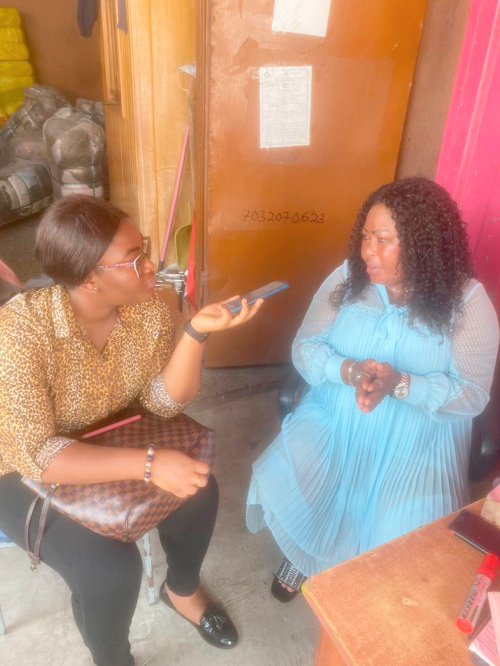
Trading can make one successful — Secondhand clothes dealer shares experience
Selling second hand goods such as shoes and clothing can be seen as an unprofitable business in Ghana. However, some traders who have become experts in the secondhand clothing business have testified to how thriving that business can be.
In Accra, for instance, the hub of secondhand clothing is Kantamanto, where hundreds of traders ply their trade.
On a daily basis, scores of people throng to that market in search of all types, shapes and colours of old and new fashion used clothes.
A dealer in secondhand clothing at the Kantamanto market in Accra, Salomey Annan, who is the owner of SalonnaGift Enterprise, shared her experience in the business with the Graphic Business.
According to her, in the past, only the well-educated ones were seen to be successful people in life, leaving the uneducated ones with no option but to go into the trading business.
To make ends meet without any formal education, she said she began her small trading business early in life. Luckily, while at it, she got married to a man who was into secondhand clothing business. Without any option, she was compelled to support the trade.
The business, she said, began with both doing it together but at some point they decided to do it individually.
She admitted that; “The secondhand clothing business is really helping Ghanaians, especially the poor ones in society, since most of them were unable to afford the brand new clothing being sold in the shops.
So, I was more passionate about helping to clothe Ghanaians, especially those unable to afford brand new ones. After all, I deem it a blessing if through me, one is able to, at least, buy a dress with just GH¢1 to wear and feel good,” Mrs Annan said.
Thriving in economic hardship
The present economic hardships have hit all and sundry. The fast depreciating local currency has made imports more expensive and reduced the capital used by many in doing business.
Sharing her thoughts on the situation, Mrs Annan minced no words by saying currently, goods were very expensive due to the cedi depreciation.
She recalled the days in the early 2000s when business was booming because the prices were low and people could afford.
“Now when we import goods, retailers often complain. Somewhere in 2004, a minimum amount of GH¢15,000 could get a wholesaler about 20 bales of used clothes.
But now, a trader needs a minimum of GH¢60,000 to import the same quantity of bales,” she said.
Strategy
No matter how hard times have become, business must go on because business people must survive at all cost. This requires fast thinking and a well thought through strategy to get around the situation.
Against this background, she said traders like her, in the second hand clothing business, now collaborate, pool their money to import the goods.
“It’s the best way to sustain the business,” Mrs Annan said, adding that; “At least this strategy is way better than staying at home and doing nothing only to go hungry in the end.”
Also, to scale up, Mrs Annan said she and her husband had also decided to begin what she described as a “cedi to cedi business” by venturing into water and beverages retailing business in their home.
She explained that “as things stood now, we still don’t know when the cedi will appreciate. As a country, we will keep moving forward and prices of goods will keep escalating so I think a cedi to cedi business will help sustain many businesses in the country,” she said.
Support from govt
To keep traders in the business and help grow the economy, she said the government should reintroduce the benchmark value for importers to enable them to have a stable price on the taxes they pay on goods imported into the country.
“The government has to come to our aid and do something about the import duties for us.
This is because we are losing our capital and the cedi depreciation is destroying our businesses,” she said.
Access Bank support
Mrs Annan, who has been a customer of Access Bank for over 15 years since the early 2000’s (Intercontinental Bank days), explained that the bank had really been of help to traders like her, especially during these crisis times when there is hardship all over the country.
“I have been saving with Access Bank since it was then Intercontinental Bank. I never took overdrafts until recently when things became so difficult in the country,” she said.
She said sales were now low and she sometimes required extra money to import.
“The loans from Access Bank have really helped my business in so many ways because I am able to clear my goods within a short period due to the stress free and quick processing nature of the loans.
She added that the capacity building training programmes, organised by the bank for traders like her, had really had a positive impact on her business.
She said traders were often trained in customer service management, marketing strategies and also receive advisory services on how to expand their businesses.